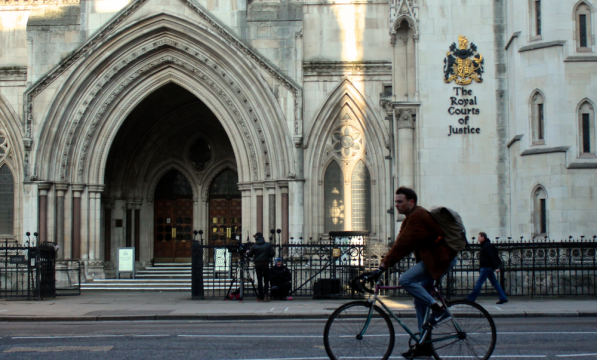Parliament debates new sentences as driving bans fall

Since the Government announced last week that it plans to review driving offences and penalties over the summer, initial proposals to take a tougher line with people who drive whilst disqualified have already been debated in Parliament.
These include increasing the maximum prison sentence for drivers who kill whilst disqualified from two to ten years and creating a new offence of 'causing serious injury whilst disqualified', with a maximum four year sentence.
The Government has also suggested making 'driving whilst disqualified' an 'either way offence' (meaning it could be tried in either the Magistrates' Courts or the Crown Courts) and extending the maximum sentence from six months to two years.
When questioned during the debate, Justice Minister Jeremy Wright MP was unable to clarify the time-frame for the wider review of offences and penalties. A review of sentencing guidelines for the most serious driving offences will follow the completion of the Government's review, but no official date has been set for this review either.
Liberal Democrat MP for Cambridge, Julian Huppert, welcomed the review, but pointed out the need for improvements in police handling of road crime to accompany any legal changes. He praised CTC's Road Justice campaign for the work already achieved in getting the police to take a tougher approach to bad driving.
Driving bans still not prioritised
Meanwhile the Ministry of Justice has published new figures on driving offences committed in 2013. They highlight the pressing need for both of the announced reviews. CTC wants them to emphasise the need for much more widespread use of driving bans, including much longer bans for serious offences.
The 2013 data show that the courts are still reluctant to impose driving bans and when they do impose bans, they tend to be for short periods. If anything, they show that courts are even less inclined to impose lifetime bans for dangerous driving than a few years ago, with a growing tendency to impose bans only until a driving test is passed. CTC fears that this could mean drivers found guilty of a serious breach of the law only lose their licence for a few months when they should lose it for a minimum of a year.
Key changes since 2012:
- Driving bans as a percentage of convictions for dangerous driving have gone down for a third consecutive year, from 92% in 2011 to 89% in 2013. Since 2009, there has been a 6% drop in the number of bans given for dangerous driving convictions.
- The number of lifetime bans given for dangerous driving convictions has gone down for a third consecutive year, from nine in 2011 to two in 2013.
- The percentage of bans for dangerous driving that were between one and three years in duration fell slightly to 41% in 2013 compared to 44% in 2012, but the percentage of bans imposed only until the driving test was passed rose from 53% in 2012 to 58% in 2013 (it was 46% in 2011).
- The percentage of bans for dangerous driving that lasted between five and ten years dropped slightly from 1.1% in 2012 to 0.8% in 2013.
- The average fine given for dangerous driving in the Crown Courts fell by more than a half, from £782 in 2012 to £380 in 2013.
- The percentage of drivers convicted of careless driving who received a ban increased slightly from 5% in 2012 to 6% in 2013, whilst the percentage of bans that were for six months or less also increased, from 66% in 2012 to 69% in 2013.
Debating sentencing
Expert legal practitioners and academics will discuss how to improve sentencing policy - so that it raises driving standards and protects the public - at an invite-only event hosted by CTC and chaired by CTC ambassador Jon Snow on 13 June.
The event will be attended by the Sentencing Council, the body responsible for conducting the planned review of sentencing guidelines for serious driving offences. CTC wants the revised guidelines to emphasise driving bans and other non-custodial sentences such as vehicle confiscation and community orders for drivers who cause danger without intent and without engaging in willful risk-taking. CTC also wants drivers who cause danger intentionally or recklessly to receive longer prison sentences, coupled with long or lifetime bans.

